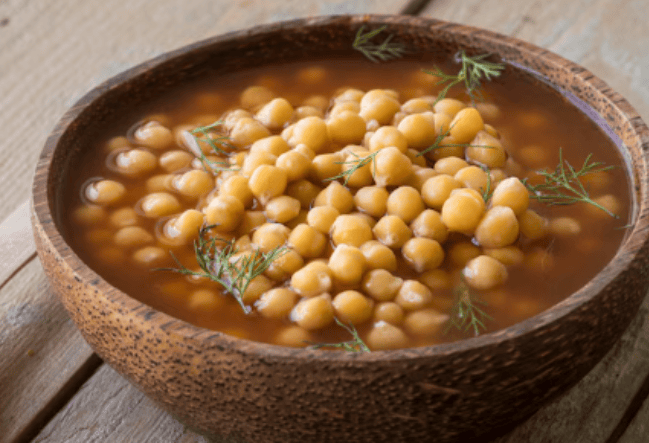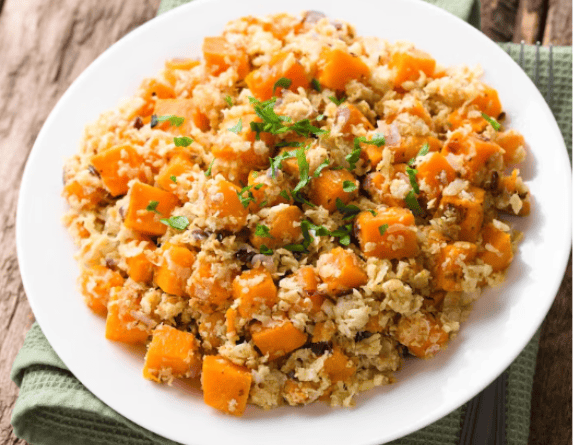Carbs get a bad rap in the world of weight loss. From low-carb trends to keto diets, many people are led to believe that cutting out carbohydrates is the only way to shed fat. But here’s the truth: not all carbs are created equal—and some can actually support your weight loss journey.
Yes, refined carbs like white bread, sugary snacks, and soda can spike blood sugar, trigger cravings, and slow down progress. But on the flip side, healthy carbs for weight loss—like oats, sweet potatoes, fruits, and legumes—are packed with fiber, nutrients, and slow-burning energy that keeps you full and fueled.
Rather than cutting carbs completely, the key is choosing the right ones. When you focus on carbs that help you lose weight, you’ll feel satisfied, energized, and more in control of your appetite.
In this article, we’ll break down the best healthy carbs to include in your diet, why they work, and how to use them to burn fat more efficiently—without giving up the foods you love.
What Are Healthy Carbs?
Not all carbs are the same—understanding the difference can be a game changer for fat loss and overall health.
Refined carbs—like white bread, pastries, sugary cereals, and soda—are processed to remove fiber and nutrients. They digest quickly, spike your blood sugar, and often leave you feeling hungry soon after eating. Regularly consuming these types of carbs can make it harder to lose weight and easier to overeat.
On the other hand, healthy carbs are mostly complex carbs, which digest more slowly and provide steady energy. They’re naturally high in fiber, vitamins, and minerals—things your body actually needs to function well.
Some of the best good carbs to eat include fruits, vegetables, whole grains, legumes, and starchy roots like sweet potatoes. These foods don’t just fuel your day—they also support digestion, improve blood sugar control, and help manage cravings.
When it comes to choosing complex carbs for fat loss, fiber is your friend. It fills you up, slows digestion, and keeps hunger in check—all without adding extra calories.
10 Best Healthy Carbs for Weight Loss
Carbs don’t have to sabotage your weight loss goals—in fact, some can help you reach them faster. The key is choosing nutrient-dense carbs that are rich in fiber, slow to digest, and packed with health benefits. Here are ten carbs that help you lose weight, supported by science and easy to enjoy in everyday meals.
1. Sweet Potatoes
Sweet potatoes are loaded with fiber, vitamin A, potassium, and antioxidants. Their low glycemic index means they don’t spike blood sugar as quickly as regular white potatoes. A 2021 study in Nutrients linked sweet potato consumption with better blood sugar control and satiety. Roast them, mash them, or slice into fries—just skip the marshmallows.
2. Oats (Steel-Cut or Rolled)
Oats are a powerful breakfast choice. They’re rich in beta-glucan, a type of soluble fiber known to reduce hunger and improve cholesterol. Research in Appetite (2020) showed that oat-based meals increased fullness and reduced subsequent calorie intake. Choose steel-cut or rolled oats over instant varieties to avoid added sugars.
3. Quinoa
Unlike most grains, quinoa is a complete protein, offering all nine essential amino acids. It’s also gluten-free and high in fiber. Its unique combo of protein and complex carbs helps maintain energy and control appetite, making it ideal for weight management. It works well in bowls, salads, or as a side.
4. Lentils
Lentils are a plant-based protein powerhouse, with about 15 grams of protein and 15 grams of fiber per cup. A 2022 review in The American Journal of Clinical Nutrition noted legumes like lentils help reduce belly fat and promote feelings of fullness. Add them to soups, curries, or grain bowls for a filling, high-fiber meal.
5. Chickpeas

Also known as garbanzo beans, chickpeas are versatile and satisfying. They offer protein, fiber, and a solid dose of resistant starch—a type of carb that resists digestion and supports gut health. A 2020 study found that diets high in pulses like chickpeas can support fat loss and reduce waist circumference. Try them roasted as a snack or blended into hummus.
6. Brown Rice
Brown rice is a whole grain that retains its bran and germ, giving it more fiber, magnesium, and nutrients than white rice. A 2019 study in Obesity Science & Practice found that substituting brown rice for white rice can support lower body weight and improved metabolic health. Serve it with stir-fries, beans, or as a meal base.
7. Berries
Strawberries, blueberries, raspberries, and blackberries are naturally low in sugar and packed with fiber and antioxidants. A study in Nutrients showed that regular berry consumption was linked to reduced abdominal fat and improved insulin sensitivity. Add them to yogurt, smoothies, or snack on them fresh.
8. Bananas (Especially Slightly Green)
Bananas are rich in potassium and contain resistant starch—especially when slightly under-ripe. This starch feeds healthy gut bacteria and improves digestion. A 2020 trial in Nutrition & Metabolism noted that resistant starch can enhance fat oxidation and increase satiety. Slice greenish bananas into oatmeal or eat them with nut butter for a filling snack.
9. Beets
Beets are low in calories but rich in nitrates, fiber, and antioxidants. They support blood flow, digestion, and endurance. A 2022 study in Frontiers in Nutrition linked beet consumption to better exercise performance and appetite regulation. Roast them for salads, blend into smoothies, or grate them raw into slaws.
10. Whole Grain Bread (Minimal Ingredients)
Not all bread is bad—whole grain bread with few ingredients can be an excellent source of fiber and slow-digesting carbs. Look for varieties with “100% whole grain” and no added sugar. The fiber keeps you full, and the complex carbs provide steady energy. Pair it with eggs, avocado, or lean protein for a balanced meal.
Choosing the right nutrient-dense carbs can help you stay full, fuel workouts, and make fat loss more sustainable. Instead of cutting carbs entirely, focus on carbs that help you lose weight—your body and your energy levels will thank you.
How Healthy Carbs Help You Lose Weight
Despite their bad reputation, the right carbs can actually make fat loss easier and more sustainable. When chosen wisely, carbs for fat burning play several important roles in supporting a healthy metabolism and preventing diet burnout.
First, fiber-rich carbs—like oats, lentils, fruits, and veggies—help you stay full longer. Fiber slows digestion, stabilizes appetite, and reduces the likelihood of overeating. A full stomach sends signals to your brain that you’re satisfied, making it easier to stick to your calorie goals.
Second, complex carbs support steady blood sugar, which keeps insulin levels more balanced. Fewer blood sugar spikes means your body is less likely to store excess fat and more likely to use fat for fuel. This can make a big difference in managing cravings and long-term fat burning.
Carbs also fuel your workouts and day-to-day activity. Without enough, you may feel sluggish, mentally foggy, or unmotivated to exercise—making it harder to stay active and burn calories consistently.
Finally, healthy carbs help prevent diet fatigue. Completely cutting them can trigger intense cravings, mood swings, or binge eating. Including smart carbs in your meals keeps your energy stable and your eating patterns sustainable.
So, if you’ve wondered how carbs help with weight loss, the answer lies in quality, balance, and timing—not elimination.
FAQs: Carbs and Fat Loss
Should I cut carbs completely to lose weight?
Not at all. Cutting carbs entirely can backfire by causing cravings, fatigue, and muscle loss. Instead, focus on healthy carbs—like fruits, vegetables, whole grains, and legumes—which support energy, digestion, and long-term fat loss.
What time of day is best to eat carbs?
There’s no one-size-fits-all answer, but many people benefit from eating carbs earlier in the day or around workouts. This helps fuel physical activity and improves recovery. However, your overall daily intake matters more than the timing.
Can I eat fruit on a low-carb diet?
Yes! Many fruits are high in fiber, water, and nutrients but relatively low in calories. Berries, apples, and citrus fruits are especially good choices. Just be mindful of portions if you’re following a stricter low-carb plan.
Are carbs bad for belly fat?
Only when consumed in excess—especially refined carbs like sugary snacks and soda. Healthy carbs, on the other hand, can actually help reduce belly fat by promoting fullness, balancing blood sugar, and supporting metabolism.
Conclusion
Carbs have been unfairly blamed for weight gain—but the truth is, carbs aren’t the enemy. It’s the highly processed, sugary ones that throw off your progress. When you choose the best carbs for weight loss—like fruits, oats, sweet potatoes, and legumes—you’re actually giving your body the fuel it needs to burn fat, stay full, and feel energized.
The key isn’t restriction—it’s balance, fiber, and real nutrients. Smart, whole-food carbs support your workouts, curb cravings, and help you stay consistent with your healthy eating habits.
So instead of cutting carbs, focus on choosing healthy carbs to eat that keep your plate—and your body—balanced. With the right approach, carbs can absolutely work with you, not against you, on your weight-loss journey.
